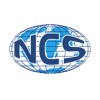Symfony
Symfony is a popular PHP framework for building web applications and APIs, known for its flexibility, scalability, and reusability. It follows the Model-View-Controller (MVC) pattern and offers a set of reusable components and tools to streamline development tasks.
Symfony provides a wide range of features and best practices for rapid application development, including dependency injection, routing, templating with Twig, ORM (Object-Relational Mapping) with Doctrine, form handling, authentication, and security components. These components facilitate robust and secure application development.
One of Symfony's key strengths is its emphasis on modularity and extensibility, allowing developers to use components independently or integrate them into existing projects. Symfony also promotes standards compliance and follows modern PHP practices to ensure code quality and maintainability.
Symfony’s command-line interface (CLI) tool, console component, and debug toolbar simplify development, debugging, and monitoring tasks, enhancing developer productivity. The framework's flexibility allows developers to customize applications to meet specific requirements effectively.
Symfony has a strong community and ecosystem that contribute bundles, plugins, and documentation to support developers in building complex applications efficiently. It is widely used for developing enterprise-level applications, content management systems, e-commerce platforms, and APIs.
With Symfony's long-term support (LTS) releases and regular updates, developers can rely on the framework for stability and security in their projects. Symfony's documentation, tutorials, and training resources make it accessible to developers of all levels of experience.
To learn more about Symfony, you can visit the official Symfony website and explore the Symfony documentation for detailed guides and tutorials on Symfony development.
























